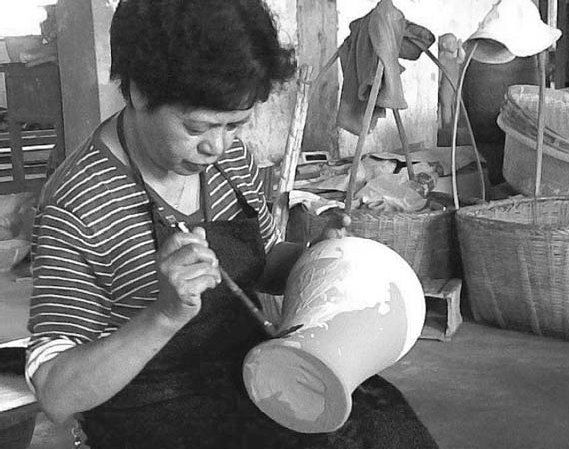Devotee sustains the luster of Huaning pottery
Updated: 2013-09-04 07:45
By Hu Yongqi and Yao Bing in Kunming (China Daily)
|
||||||||
|
Li Zixuan paints on a pottery at her kiln in Huaning county in Yuxi, Yunnan province. Provided to China Daily |
While throngs of people squeezed into the exhibition hall for animation and costume players at the first Yunnan Cultural Industry Expo in Kunming, Li Zixuan's exhibition of Huaning pottery was much less crowded. Her booth glowed as it reflected a traditionally charming culture - quiet but beautiful. Huaning pottery (or Ningzhou pottery in ancient times), once on the verge of disappearance, was passed on by Li's selfless determination.
Born in 1946 in Huaning county of Yuxi in Yunnan province, today's master of Huaning pottery began her career by shaping clay as a 17-year-old when she married a potter. "In the past, it was taboo for females to enter the dragon kiln, let alone learn the skills of making pottery," says Li.
"I tried and failed again and again, but never gave up. In June 1980, I got a chance to have three months of training in All-China Art Pottery Designing class in Qinzhou, Guangxi Zhuang autonomous region," she says. That broadened her horizons and changed her destiny. "Since then, I was dedicated to studying Huaning pottery's physical properties, digging into its style design and exploring the ratio of the ingredients."
Li only attended school for one and a half years. Later, she had to study chemistry with her daughter who was at high school to explore the ingredients. That was difficult for a woman in her 30s.
"I used pieces of paper to record chemistry and I would read and memorize them whenever I had time. When I got puzzled, I consulted with the masters in the ceramics factory. I bought test tubes and alcohol lamps to conduct experiments at home during my spare time," says Li.
Li's hard work bore fruit in a few years. In 1989, she was hired by the Second Pottery Factory in Huaning, which was facing bankruptcy. Thanks to Li's efforts, the collapsing factory was reinvigorated with profit surging to 300,000 yuan ($49,000), 10 times that of the previous year. She was appointed president of the restructured factory in 2001. Her push for quality, she says, won new customers at home and abroad, in countries such as Singapore and Malaysia.
But she says she couldn't have done it all on her own. Li's family was always there for her to help protect the cultural heritage. Now, her son, three daughters and other family members are dedicated to the pottery industry.
Chen Junwei, her son-in-law and the general manager of the Huaning Seven Rainbow Kiln Ceramic Co, says Li has devoted herself to Huaning pottery, characterized by designs of traditional flowers.
"She is selfless in cultivating the workers and sharing her experience with them; she also helps the local economy with 157 staff working in her company," Chen says.
Li's grandson Cao Liang also works in the industry. "Huaning pottery represents the local culture and thus should be passed down from generation to generation. People can know more about Huaning county through these pieces, which are made out of natural minerals," says Cao, applauding his grandmother's efforts to continue this culture.
During the first Yunnan Cultural Industry Expo that concluded in mid-August, visitors had another chance to feast their eyes on the carefully made pottery.
"As long as I can breathe, I will teach anyone who wants to learn and carry on the craft," says Li. "It matters most that the pottery must be alive, and not stay in the museum."
Contact the writers through huyongqi@chinadaily.com.cn.
Li Yingqing and Guo Anfei contributed to the story.
(China Daily USA 09/04/2013 page10)

 US missile destroyers stand by in Mediterranean
US missile destroyers stand by in Mediterranean
 Obama wins key backing on Syria strike
Obama wins key backing on Syria strike
 The first Chinese to reach US Open semi-final
The first Chinese to reach US Open semi-final
 Photos: Daily life for Free Syrian Army
Photos: Daily life for Free Syrian Army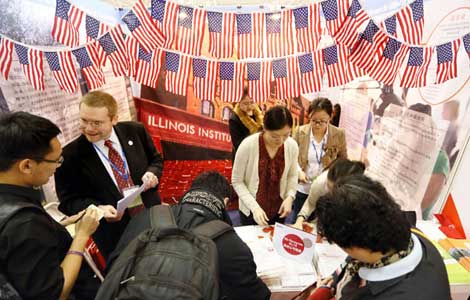
 Fewer Chinese students apply to US graduate schools
Fewer Chinese students apply to US graduate schools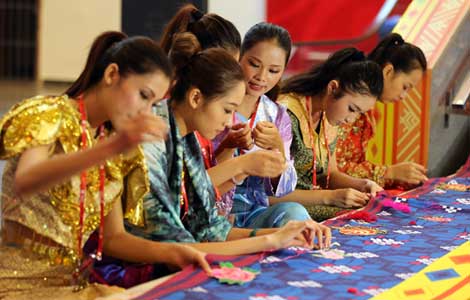
 Technology transfer is a focus
Technology transfer is a focus
 Syrian refugees exceed 2m
Syrian refugees exceed 2m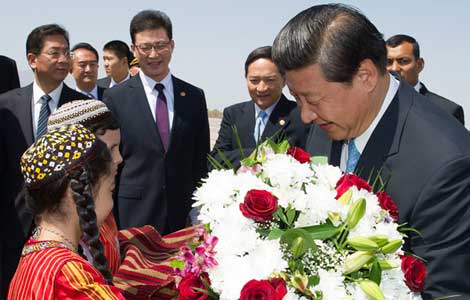
 Energy partners boost gas supplies
Energy partners boost gas supplies
Most Viewed
Editor's Picks
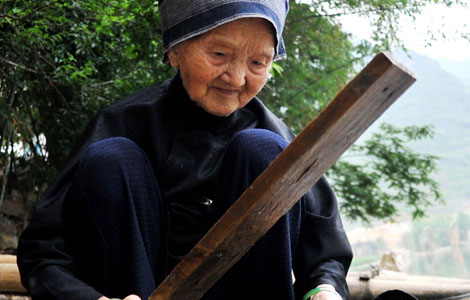
|
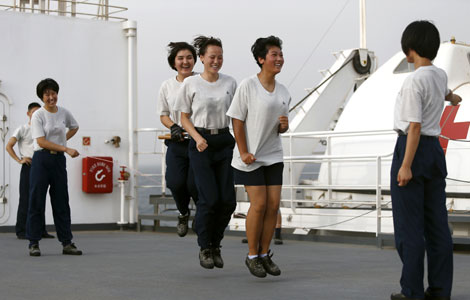
|

|

|

|

|
Today's Top News
China's new UN envoy takes seat amid Syrian turmoil
Hainan starts Chicago-Beijing direct
Kodak emerges from bankruptcy
Senate agrees on draft authorization on Syria
Local debts not to drag China into financial crisis
Police name attacker who took boy's eyes
Fewer Chinese apply to US graduate schools
Japan urged to face history
US Weekly

|

|
